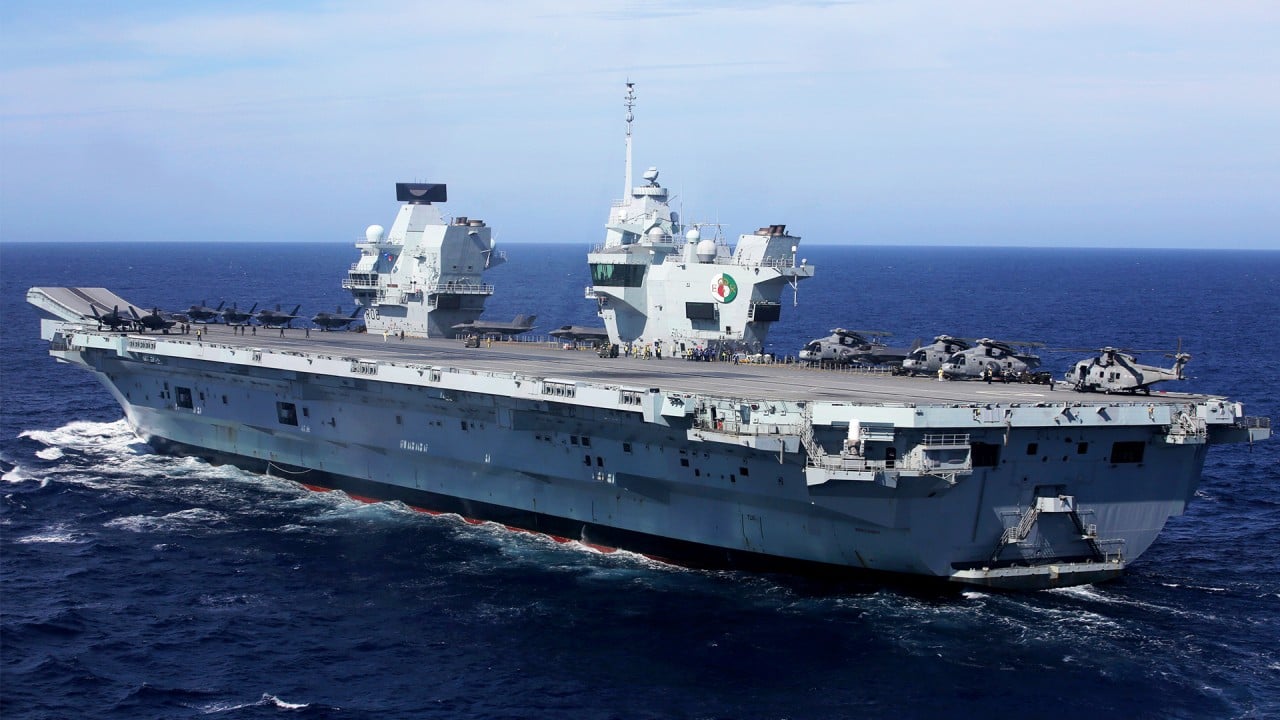
Why China is not saying yes – or no – to the German navy’s port call request
- A German warship is heading to the Asia-Pacific following US calls to its allies to take more interest in the region
- China’s response to the vessel’s application to stop in Shanghai could show the direction of bilateral relations, observers say
The frigate Bayern left its port in northwestern Germany on Monday on a voyage that is expected to last about six months.
According to Germany, the deployment will help enforce the United Nations’ sanctions regime against North Korea, and involve several navy exercises and port visits.
In an apparent effort to chart a course between China and the US, Germany requested a port call in Shanghai. It also invited Chinese forces to take part in “Kiel Week”, a series of sailing events in September.
There is precedent for Chinese participation in the German event, with China taking part in the Kiel festivities in 2016 and 2018.
But even though Berlin has promised not to pass within 12 nautical miles of any land in the disputed waters, the Chinese foreign ministry has said a port call in Shanghai is off the table until Berlin clarifies its intentions regarding the warship operation.
As US launches huge Indo-Pacific drill, what’s the message to China?
Cui Hongjian, director of the department of European studies at the China Institute of International Studies, said there were bigger issues at play and the handling of the request could affect relations between the two countries after elections in September, when Angela Merkel is expected to step down as chancellor.
“The two are testing each other’s bottom lines right now to decide how the two sides deal with each other,” Cui said.

02:26
Britain’s new aircraft carrier joins Nato exercises ahead of Indo-Pacific voyage
The document described China as a regional power and an emerging world power “that calls the rules of the international order into question in certain quarters”.
German defence officials also said sea routes in the Indo-Pacific region were no longer open and secure.
But China and Germany are still working to stabilise their relations. In a video call with Merkel and French President Emmanuel Macron in July, Chinese President Xi Jinping said the three nations should increase cooperation.
China-US tension: aircraft carrier tag team shows America strengthening Indo-Pacific presence
Cui said Germany’s approach – driven by a dual desire to protect German economic interests with its largest trading partner and to work closely with “like-minded” allies on issues such as human rights – was not sustainable.
“The goal that Germany wants to achieve is to please both sides. But it is difficult for China to accept that,” he said. “It should be a wake-up call for them to realise that dealing with China is not that simple.
“It’s like sugar-coated pills – [Germany] wants to show a friendly posture by visiting Shanghai while crossing the South China Sea in the name of the freedom of navigation,” Cui said.
A spokesman for the German Defence Ministry said the nation’s engagement in the region did not mean it was against someone.
“It is about resolving possible conflicts peacefully and in partnership,” the spokesman said.

06:24
Explained: the history of China’s territorial disputes
He said the position had been made clear regarding the frigate’s transit through the South China Sea during a video call between the two countries’ defence ministers on July 6.
Cui said China had not rejected the port call request – which is a signal that it might still go ahead – and Beijing was aware that its handling of the request would affect bilateral ties following the September elections.
“September should be a factor for consideration for both sides. China hopes there will be a clear stance after the new German government is installed,” he said. “China’s response will determine the basic thinking of China’s dealings with the new German government.”
But Thorsten Benner, director of the Global Public Policy Institute in Berlin, said it was “peculiar” that Beijing asked Berlin to clarify its intentions.
Germany’s South China Sea adventure exposes divisions in Berlin
He said it was clear that Berlin was trying to signal support for international law while avoiding antagonising Beijing.
“For Beijing, the supposedly friendly port call in Shanghai seems to amount to putting lipstick on the pig of an unfriendly mission. It looks like Beijing prefers to call a pig a pig rather than accepting the lipstick sweetener. That’s Beijing’s choice,” he said.
He added that if Beijing’s message to Berlin was that Germany needed to pick sides, it would most likely end up strengthening the cause of those arguing in favour of a tougher stand on Beijing.
“There are many in the German debate who argue in favour of ambiguity and not taking sides,” he said, “but very few who’d argue that Berlin should take Beijing’s side and be subordinate to Beijing’s wishes.”

